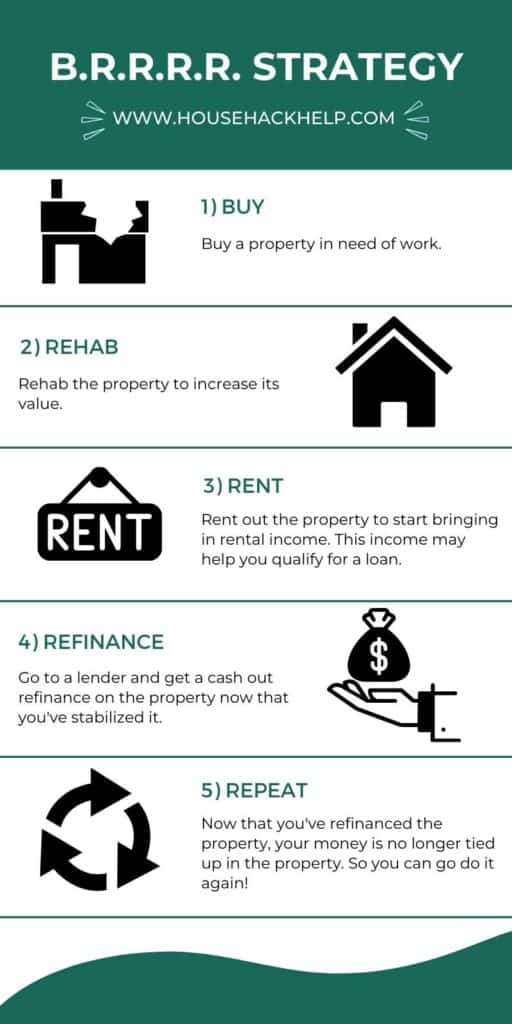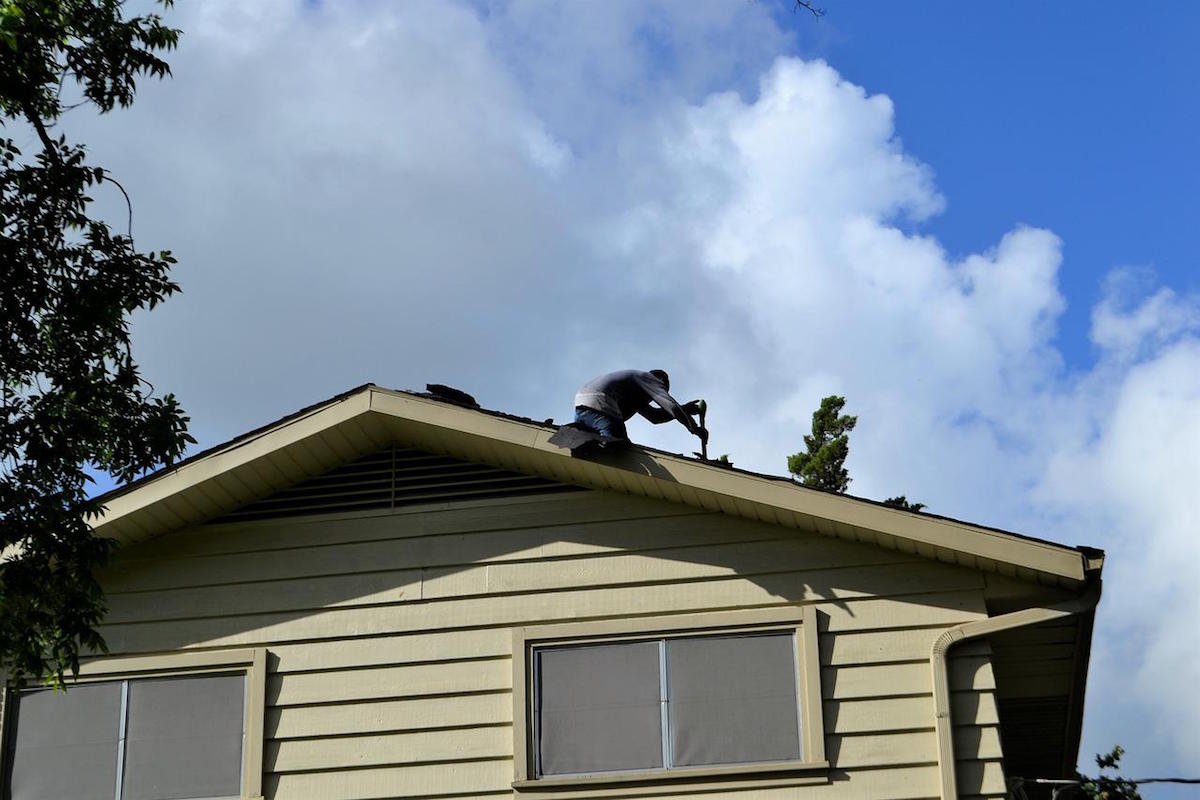Yes, you can BRRRR a house hack as long as you choose the right property and carefully consider all financing constraints.
What is House Hacking?
House hacking is the process of renting out extra space in your primary residence. This might mean purchasing a multi-family property, living in one unit and renting out the others, or occupying a single-family home and renting out extra bedrooms.
What is BRRRR Investing?
BRRRR stands for buy, rehab, rent, refinance, and repeat. This method of investing involves buying a distressed property at a discount, fixing it up, renting it out, and then getting a cash-out refinance to recoup your capital while still holding the property.

The idea behind the BRRRR strategy is that you only need to save up enough money for the down payment and rehab on the first property, and then you can use the money from refinancing to acquire more investment properties.
In short, your capital gets recycled.
For example, imagine that you find a home in a nice neighborhood that has been vacant for a few years and is pretty run down.
In its current condition, the home is going for $100,000. But other properties in the neighborhood of a comparable size and in good condition are going for $150,000.
You purchase the home for $100,000 with 20% down ($20,000), and you put another $12,500 into renovations. At this point your initial investment totals $32,500.
Once the improvements are done, you start renting out the property and collect a steady rental income for about a year. At the end of the year, the home is appraised for $150,000, and you now qualify for a refinance.
Since refinance loans are typically capped at 75% of the appraised value, let’s say that the bank allows you to take out a loan for $112,500.
You can now use this money to pay off the original $80,000 loan and get your $32,500 in invested cash back. Now you can “repeat” and go invest in another property.
How to BRRRR a House Hack
- Search for a property. You want to look for distressed or foreclosed properties that are undervalued but have some potential. Carefully consider whether you will be able to increase the value of the home through renovations, and whether you can complete the renovations in a reasonable amount of time. Calculate the home’s after repair value (ARV) by researching similar homes in the area that have been sold recently.
- Buy. Once you select your target property, you’ll purchase it using either cash or some form of financing. Often, dilapidated properties will only qualify for shorter term financing. But certain loans, like FHA 203(k) loans, will finance your rehab over a long-term, fixed-rate loan.
- Rehab. Choose the improvements that you want to make carefully and leave some leeway in your budget. Focus first on renovations that will bring the home up to code, then focus on renovations that will increase the value of the home. Keep in mind that unexpected expenses are very common with home improvements and it can be easy to go over budget.
- Move in and rent out. Once renovations are complete, you can move into your home and start screening potential tenants to fill your extra bedrooms or units. Your bank might require that you wait a certain amount of time before refinancing. This is known as the “seasoning period” and usually lasts between six months and a year.
- Refinance. Once the seasoning period has passed, you should be able to refinance your property and get a new loan for up to 75% of the home’s appraised value.
- Repeat. The cash-out refinance will allow you to access the equity in your home, replacing your first mortgage with a larger one and using the leftover money to invest in a new property.
Things to Watch Out For
The key to a successful BRRRR investment is to ensure that you can later refinance and cash out enough for a new investment.
In order to qualify for a refinance, your property must appraise high enough after your renovations are complete.
There are also financing constraints associated with BRRRR investing, such that when it’s time to refinance, lenders will usually only loan up to 75% of the property’s appraised value.
However, many house hackers purchase properties using a 95% LTV mortgage to start. So, if you’re trying to refinance later, you’ll have to greatly increase the value of the home through renovations so that your LTV dips below 75%. And even then you might only be able to cash out very little from your rehab budget.
If you aren’t putting much money down to start, you need to make sure that you find a really good deal on a great property that significantly climbs in value once rehab is complete. You don’t want to end up qualifying for less than you planned when it comes time to refinance.
Additionally, as you continue to refinance your homes, you increase your debt and strip down your equity, and you may face climbing interest rates. So tread carefully.
Can You BRRRR a House Hack?
Yes, you can BRRRR a house hack as long as you choose a good property and can later qualify for a cash-out refinance that leaves you with enough money to re-invest.
House hacking is a great strategy for beginner real estate investors because it doesn’t require a ton of money up front and buyers can take advantage of owner-occupied financing.
Since BRRRR investing involves purchasing a distressed home, it may be hard to qualify for a traditional mortgage. You will likely need to put more money up front for a down payment plus cover the cost of repairs and improvements, and you might be faced with higher interest rates.
As long as you have the time, money, and patience to put into your investment, house hacking and BRRRR investing can work well as complimentary strategies for budding real estate investors.
This website, and any communication stemming from it, should not be taken as financial or legal advice for your specific situation. Consult directly with a licensed financial professional should you need investment advice and consult directly with a licensed attorney directly should you need legal advice. Assume all links are affiliate links. I am an Amazon affiliate.


